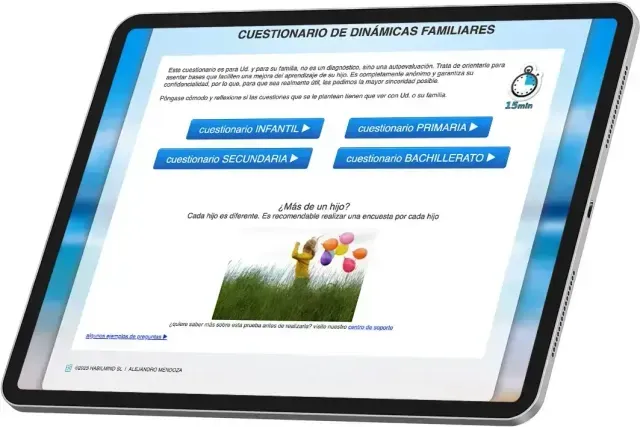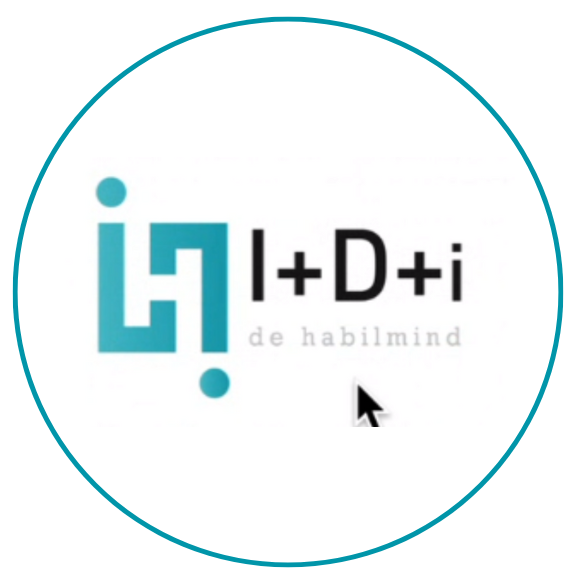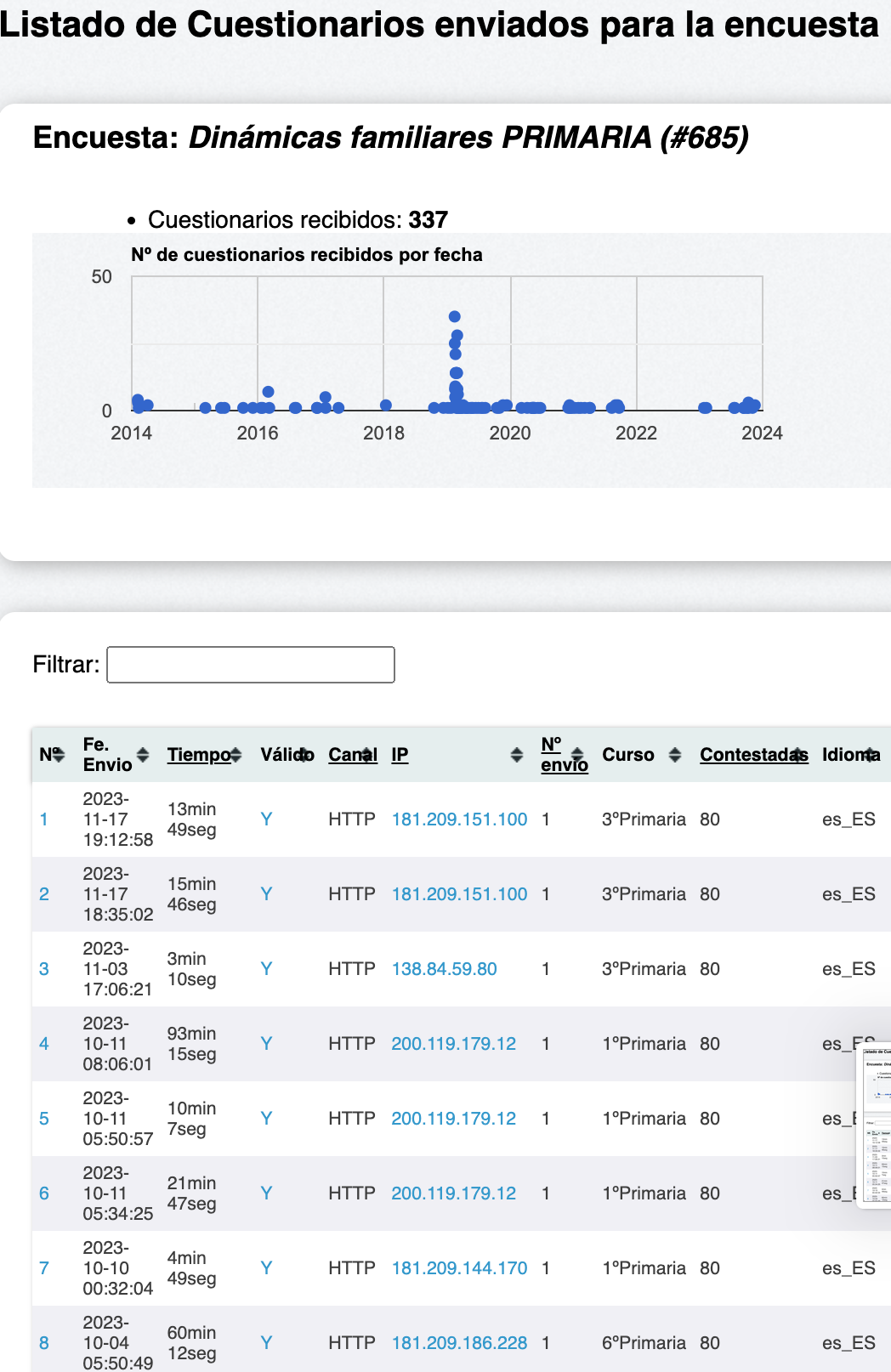Habilmind > Related to Family Engagement and Satisfaction > Family Dynamics
Family Dynamics
Facilitators of Learning
Assessment of the family and leisure factors that most influence children's learning, providing guidance on fostering styles that enhance their stimulation.
ℹ️Application: Anonymous self-assessment
🕓Duration: 20 minutes
✅Applicable age: Adults with children aged 3 to 18 years


Authors

Déborah Martín
Researcher at various Spanish universities.

Habilmind R&D&I Team
Habilmind team dedicated to educational innovation.
What does your school obtain from this tool?
01
Provide
Information to support parent education programmes.
02
Identify
Conflicts.
03
Intervene
Proactively.
04
Offer
Improvement strategies tailored to each family.
05
Assess the impact
Through the re-administration of the tool.
Problems you prevent (or mitigate) when using Family Dynamics
1.Lack of autonomy in children and adolescents: Overprotective family environments can limit children's and adolescents' ability to develop autonomy and decision-making skills, which may hinder their personal and social growth.
2.Difficulties in conflict resolution: A lack of tolerance for frustration in children and adolescents can lead to challenges in managing conflicts constructively at home and school, negatively affecting family and school relationships.
3.Isolation and lack of social support: Poor communication and relationship dynamics between families and schools can result in a child's or adolescent's isolation and a lack of social support in both settings. This can impact their emotional well-being and ability to effectively handle challenges.
On which platforms of the Habilmind Ecosystem is this tool available?
ASIRE Psychoeducational Congress. Burgos 15
Presentation of the Family Dynamics Facilitators of Learning test, developed in 2013.
Try it for free, with no obligation
Request access to the tool through the "FREE REGISTRATION" button to explore it first-hand.
(*) Free trials are available for schools, colleges, institutes, universities, clinical psychologists, and researchers.










